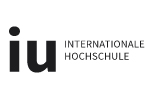The central question of the collaborative project of the DZHW and the IU (International University) is: under which conditions are survey-based and process data as well as resulting empirical evidence from higher education and science studies incorporated into decision-making processes for higher education development? In our project, we compare two fields of application: "education and support of early career researchers" (subproject DZHW) and "quality in teaching" (subproject IU).
Both fields of application are characterised by the fact that internally and externally collected survey data – e.g. on students, graduates and doctoral candidates – traditionally serves as an important source of information within the context of quality management processes at higher education institutions. In addition, process data has gained in importance for higher education development as study course and register data are becoming increasingly available and information infrastructures at universities expand in light of the introduction of the research core data set as a standard for research information in Germany. However, the use of process data is largely unexplored in both fields of application. At the same time, the two fields of application show structural differences that promise great analytical potential for a comparative study of conditions of data and results use in higher education decision-making processes.
In our project we seek to answer the following questions:
- Which criteria are used by different stakeholders at higher education institutions to evaluate survey and process data and empirical evidence based on them?
- Which individual and institutional framework conditions (e.g., responsibilities and organisational structures, resource endowment) are decisive for their use?
- What role does networking within and beyond higher education institutions play in the dissemination of empirical evidence in practice contexts?
- Which conditions or sets of conditions eventually prove to be sufficient or necessary for incorporating the different data sources in higher education decision and strategy processes?
We follow a case-based approach in both data collection and analysis. Our case studies draw on web research, document analysis, and semi-standardised individual interviews at universities as a data basis. Based on this data, we will apply Qualitative Comparative Analysis (QCA) to identify sets of conditions that contribute to the success or failure of the use of data and empirical evidence in the respective fields of application.
The results will be disseminated in the form of a good practice academy and contributions at events of relevant networks of the community of practice (e.g. UniWiND, UniNetzPE, Netzwerk Wissenschaftsmanagement) as well as to interested researchers in higher education and science studies.



